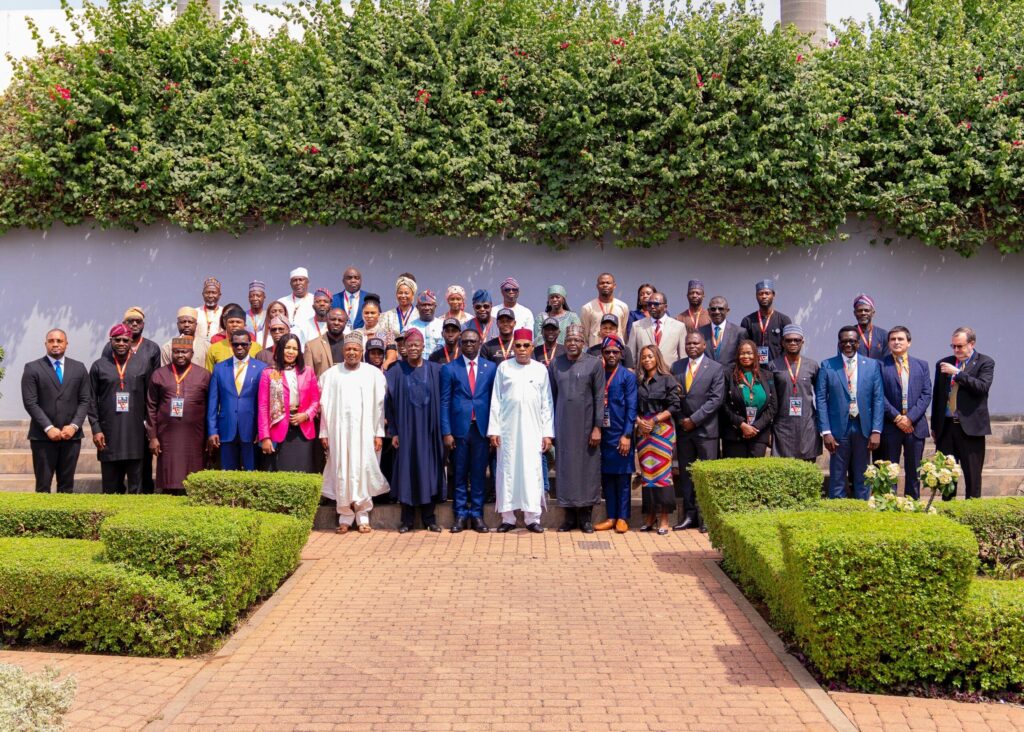President Bola Tinubu has reaffirmed his administration’s commitment to equipping Nigerian youths with the necessary skills to compete effectively on the global stage.
He outlined key areas for youth training, including digital literacy, technical skills, entrepreneurship, and the creative industries, emphasizing that a nation’s success is ensured “when its children go to bed assured of their place in a changing world.”
The President made this assertion on Monday during the official launch of the Nigerian Youth Academy (NiYA) at the Council Chambers of the Presidential Villa, Abuja.
Represented by Vice President Kashim Shettima, Tinubu noted that Nigeria, with a median age of 17 years, has one of the youngest populations in the world.
He observed that this demographic advantage presents a challenge, especially as Nigeria is projected to become the third most populous nation by 2050, with the majority of its citizens under the age of 21.
NiYA, according to the President, will focus on three critical areas: education and skills development, economic empowerment, and leadership and civic engagement.
“Through world-class training in digital literacy, technical skills, entrepreneurship, and the creative industries, we will ensure that our youth are equipped to compete on the global stage.
“Initiatives like the Youth Investment Fund and the Presidential Initiative for Youth Enterprise Clusters will provide financial support, mentorship, and resources to young entrepreneurs, while the establishment of a National Youth Development Bank will ensure access to the capital needed to turn ideas into thriving businesses,” he stated.
Tinubu described NiYA as a bold response to Nigeria’s low human capital index ranking, high unemployment, and other barriers to progress.
He assured that within the next two years, the academy will train and empower millions of young Nigerians, equipping them with the necessary skills, knowledge, and opportunities to compete globally.
“This is not just an investment in their future; it is an investment in the future of our nation,” he declared.
The President acknowledged that youth unemployment and learning poverty remain critical challenges to national development, emphasizing that a robust, skills-driven learning environment is essential to securing Nigeria’s human capital potential.
“Nigeria’s Human Capital Index ranking remains below its potential, with youth unemployment and learning poverty presenting critical barriers to progress.
“These statistics are not just numbers; they reflect lives disrupted, dreams deferred, and futures left uncertain. The Nigerian Youth Academy is our commitment to changing this narrative.
“The Nigerian Youth Academy will nurture the next generation of leaders, training them in governance, policy-making, and community development. We believe that the success of this initiative rests not in Abuja alone but in the communities where real change is felt.”
Earlier, the Minister for Youth Development, Ayodele Olawande, described the initiative as a strategic effort to equip young Nigerians with marketable skills.
“The President promised Nigerian youths a platform to achieve their dreams. The dream of many young Nigerians is to have a good job and live a good life,” he said.
Olawande emphasized that NiYA aims to bridge the skills gap in the job market and empower young people with the necessary tools for employment and entrepreneurship.
“This initiative is for every Nigerian youth. NiYA represents Mr President’s determination to help young people build a better future and create opportunities for themselves and their families,” he added.















